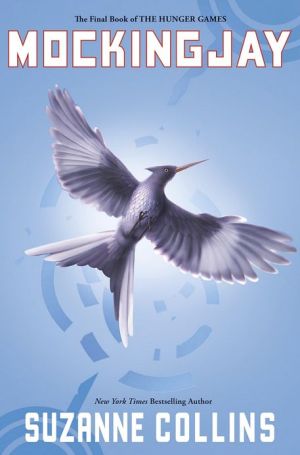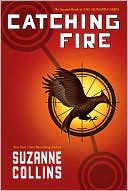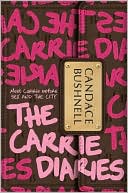Red Glass
ONE NIGHT SOPHIE and her parents are called to a hospital where Pedro, 6-year-old Mexican boy, is recovering from dehydration. Crossing the border into Arizona with a group of Mexicans and a coyote, or guide, Pedro and his parents faced such harsh conditions that the boy is the only survivor. Pedro comes to live with Sophie, her parents, and Sophie's Aunt Dika, a refugee of the war in Bosnia. Sophie loves Pedro - her Principito, or Little Prince. But after a year, Pedro's surviving family in...
Search in google:
ONE NIGHT SOPHIE and her parents are called to a hospital where Pedro, 6-year-old Mexican boy, is recovering from dehydration. Crossing the border into Arizona with a group of Mexicans and a coyote, or guide, Pedro and his parents faced such harsh conditions that the boy is the only survivor. Pedro comes to live with Sophie, her parents, and Sophie's Aunt Dika, a refugee of the war in Bosnia. Sophie loves Pedro - her Principito, or Little Prince. But after a year, Pedro's surviving family in Mexico makes contact, and Sophie, Dika, Dika's new boyfriend, and his son must travel with Pedro to his hometown so that he can make a heartwrenching decision.From the Hardcover edition.Publishers WeeklySuffused with the region's vibrant colors, Resau's (What the Moon Saw) memorable novel deftly blends Latin America's richness and mystery with the brutal realities its emigrants carry away. In her Arizona border town, narrator Sophie looks on as "a woman in a dress gazed at our muddy pond, a shallow puddle of sludge and leaves that shone in the moonlight. She knelt down as though she were praying, bowed her head, and drank, cupping the dirty water to her lips." The prose captivates from the first chapter, where a six-year-old Mexican boy, orphaned during an illegal border crossing, enters Sophie's family on her 16th birthday, inviting comparisons with her favorite fictional character, the Little Prince (Saint-Exupéry's story serves as a subtext throughout). Like him, vulnerable Pablo yearns to go home. Sophie, bound by long-held fears, emerges from her tight shell as she helps escorts him to Mexico and continues on to Guatemala to help her new love interest, a teenage survivor of Guatemala's civil war, resurrect a painful past. Central themes of fear and emotional survival permeate the multilayered plot; Resau focuses on Sophie's increasing willingness to cross physical, social and emotional borders, but most of her other characters have also faced major dislocations, from Sophie's British-born mother to the distantly related Dika, a middle-aged Bosnian refugee. A mystical overlay from the practices of Pablo's Mixtec relatives adds even more luster to a vibrant, large-hearted story. Ages 10-up. (Sept.)Copyright 2007 Reed Business Information
One night in June, at midnight, I was in bed reading The Little Prince, a book I’d already read once and underlined for world lit class. I was lost in the story, right there with the pilot alone in the sand dunes when the little boy appears out of nowhere.\ Right then, the phone rang. I walked into the kitchen in my nightgown, my bare feet slapping the clay tile, my mind still in the sand dunes of another planet.\ I picked up the phone. “Hello?”\ “Officer Douglas here, Border Patrol. I need to speak with Juan Gutiérrez.”\ My stomach tightened. I knocked on Mom and Juan’s door. “Juan. Border Patrol’s on the phone.”\ During the phone call, Juan listened and nodded gravely. “Yes, yes, I see. Seven dead?” His voice cracked. “I have no idea how my business card got in this kid’s pocket.”\ I sat at the kitchen table, tracing the deep, worn scratches in the wood, trying not to stare at the tears leaking out of Juan’s eyes.\ Mom disappeared into the bedroom, and a few minutes later, calmly reemerged, her keys jangling. She’d already changed into a gauzy dress and turquoise necklace. She carried herself in a European-model way, her neck long, never slouching, not even in the middle of the night un- der the weight of bad news. Only two delicate furrows on her forehead betrayed her worry. That, and her British accent grew a bit more pronounced, as it did whenever she got emotional.\ Just as Juan was hanging up the phone, Great-aunt Dika thudded into the kitchen, her eyes wide and alarmed. “What is it?” she cried. “What is it?” For Dika, being woken in the middle of the night meant bombings and attacks. She came from Bosnia and she’d materialized in our lives six months earlier. Dee-ka is how she said her name. Trying to understand Dika was like deciphering a code: vs were really ws, ds were ths, rolling rrrs were rs. Her words pierced the air, loud and shrill, as if she were perpetually in the middle of a big, rowdy party. Be patient with her, Sophie, Mom kept telling me, the woman barely survived a war. But I suspected she was a naturally hyper person.\ Juan rubbed his face. The muscles in his arms flexed, moving the snake tattoos. “Seven Mexicans died crossing the desert.” He spoke in Spanish, as he always did when he felt deeply about something. “One boy survived. They found my business card in his pocket.”\ On the way to the hospital in the puttering Volkswagen Bus, Mom clutched the wheel and came up with possible scenarios. Juan, meanwhile, sat hunched in the passenger seat, his head in his hands.\ He’d come from Mexico in the eighties, illegally, across the desert. He got residency after he married my mom nine years ago. Since then, when people crossed the desert to Tucson, Juan sometimes put them up for a night. He gave them food and water and always refused payment. His motives were good, but what he did was against the law. Mom finally put her foot down about it. Only in absolute emergencies, she said, could these people stay at our place.\ Mom sped down First Avenue, her eyes flicking nervously from the rearview to the side-view mirror. I knew she was wondering if we’d get in trouble, if the Border Patrol had discovered we’d been helping immigrants. “You know, Juan,” she said in Spanish, “maybe you did business with someone who knew this family. Who knows, maybe the card was passed around a lot. The boy could’ve found it on the street.”\ Dika, meanwhile, muttered in the background. “This poor boy. Poor, poor boy.” She spoke her own strange version of English. Her accent moved from Slavic to Spanish to German. She was an onion, layers of language peeling off here and there, exposing bits of her sixty years of life, not much, just enough to make you wonder.\ The hospital was a surreal place at one in the morning, a maze of fluorescent corridors. A man in a wrinkled orange shirt and braces met us outside the boy’s room. He shook hands with each of us, and said he was with CPS, Child Protective Services.\ “The kid’s a foundling,” the man said. “That’s what the law calls them. A young child, found alone.” He mumbled, trying to hide his braces. “We’re pretty sure his parents died crossing the desert. He looks at least five years old, but he won’t talk. When the sheriff asked him about his parents, he pointed out their bodies. Problem is, we can’t ID the bodies and we don’t know the kid’s name.”\ “He’s probably in shock,” Mom said. “His parents dead. Three days in a desert.”\ “Three days in desert!” Dika cried. “That boy is hungry now!” She barreled down the bright hallway toward the vending machines.\ The CPS man swung open the door and we entered the room. There was a tiny life on the bed, lost in a hospital gown spotted with hippos and giraffes. His eyes were open but lifeless. A tube was taped to the back of his hand.\ Foundling. What a strange word. It made me think of the fairy tales that Juan used to tell me—didn’t they start with foundlings in the wilderness who turned out to be magical?\ “Hola, amigo,” Juan whispered.\ Mom touched the boy’s thin wrist. “¿Cómo estás, mi amor?”\ No answer.\ “Sure you don’t know this child?” the CPS man asked.\ Juan shook his head.\ The man sighed. “I was hoping you might.” He explained what would happen to the boy. If no relatives claimed him, he would become an American citizen, under the care of CPS.\ I looked at the boy. A dark-skinned Little Prince, a lonely apparition from the desert. Around his neck hung a tangle of strings attached to square bits of leather imprinted with saints. On his cheek, a pinkish spot of skin, the color of a conch shell’s spiral. Maybe a wound healing, maybe a birthmark.\ “Then what would happen to the little guy?” Juan asked.\ “Foster care, adoption.”\ Dika appeared at the doorway with a pack of Fig Newtons. “We take him!” She ripped open the plastic with her yellowed teeth, shoved a cookie in her mouth, and passed the package around the room. The man took one politely.\ “We take him, Sophie. Yes?” Dika looked at me. She was always trying to make me an accomplice in her plans.\ I shrugged and glanced at Mom and Juan. They were ignoring her and talking in low voices. I thought about it, the possibility of taking him. A little brother might be cute. But this boy on the hospital bed wasn’t exactly cute. To tell the truth, he scared me. He was living proof of one of my worst fears: Your parents really could die and leave you alone in the world. For the first seven years of my life, it was just Mom and me. No father, no grandparents, no aunts or uncles. Early on, I figured out that if anything happened to Mom, I would be alone on this planet. Then, when Juan came along, you’d think I’d have felt safer, but my fears of a parent dying were just multiplied by two.\ Dika sat her wide hips on the bed, half-smushing the boy, and pulled out a cookie. “Aquí, for you, mi amor.” You wouldn’t expect a Bosnian refugee to speak nearly perfect Spanish, but Dika boasted that she spoke a dozen languages.\ She half-reclined on the hospital bed and smiled proudly, watching him munch on the Fig Newton.\ “That’s the first he’s eaten,” the CPS man said.\ Dika handed the boy another Fig Newton. “Of course we take him,” she said again.
\ Publishers WeeklySuffused with the region's vibrant colors, Resau's (What the Moon Saw) memorable novel deftly blends Latin America's richness and mystery with the brutal realities its emigrants carry away. In her Arizona border town, narrator Sophie looks on as "a woman in a dress gazed at our muddy pond, a shallow puddle of sludge and leaves that shone in the moonlight. She knelt down as though she were praying, bowed her head, and drank, cupping the dirty water to her lips." The prose captivates from the first chapter, where a six-year-old Mexican boy, orphaned during an illegal border crossing, enters Sophie's family on her 16th birthday, inviting comparisons with her favorite fictional character, the Little Prince (Saint-Exupéry's story serves as a subtext throughout). Like him, vulnerable Pablo yearns to go home. Sophie, bound by long-held fears, emerges from her tight shell as she helps escorts him to Mexico and continues on to Guatemala to help her new love interest, a teenage survivor of Guatemala's civil war, resurrect a painful past. Central themes of fear and emotional survival permeate the multilayered plot; Resau focuses on Sophie's increasing willingness to cross physical, social and emotional borders, but most of her other characters have also faced major dislocations, from Sophie's British-born mother to the distantly related Dika, a middle-aged Bosnian refugee. A mystical overlay from the practices of Pablo's Mixtec relatives adds even more luster to a vibrant, large-hearted story. Ages 10-up. (Sept.)\ Copyright 2007 Reed Business Information\ \ \ \ \ VOYA\ - Susan Allen\ This story is told from the point of view of a teenage girl named Sophie. Sophie is full of deep anxieties and suffers from panic attacks. She is aware that these fears could affect the way that she lives her life. Sophie comes out of herself by getting personally involved with a very young, illegal Mexican immigrant named Pablo; her mother's great aunt, Dika, who suffered during the Bosnian War; and Guatemalan Mr. Lorenzo and his son, Angel, who were involved with the violence of that country. While traveling with this fascinating but mismatched group of personalities to Pablo's home in Mexico and then on alone to Guatemala to help bring back Mr. Lorenzo and Angel, Sophie finds inner strength and a confidence that she has lacked. The characters in this book are all delightful. They are warm and real, with varying degrees of unconventional. They are quite different from each other, but still they connect. The reader becomes very close to them. The themes of civil violence, a desire to better one's life, and the dilemma of how to do it-legally or illegally-make it a great book for class discussions on current events. The writing is so rich that it would also be a great read-aloud.\ \ \ Kirkus ReviewsSixteen-year-old Sophie is well loved at home by her mother, stepfather and great aunt, who form a multi-ethnic family of great courage and compassion. But she's riddled with anxieties, fears and sensitivities. She expects disaster, death and loss around every corner. The arrival of little Pablito, a Mexican refugee, precipitates a series of life-changing events. Suddenly Sophie is thrust into situations and relationships that test her at every step. From simply being able to eat unfamiliar foods and interacting with people, to coping with real danger, she comes to the realization that she is much more capable and mature than she ever believed and that life and love are not to be feared. As Sophie careens from one adventure to another, Resau attempts to cover way too much ground as she deals with the plight of illegal immigrants, as well as past and present warfare and destruction in Guatemala and Bosnia. But somehow it all works. The characters are so compelling and sympathetic that the reader really cares how they all fare. Emotionally charged and powerful. (Fiction. 12-15)\ \








